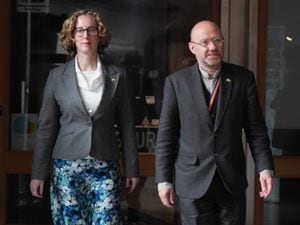Majority of education staff, parents and pupils support reform to GCSEs – poll
There is concern in the education sector that both curriculum and assessment are ‘falling short in serving the needs of young people’, report says.

The majority of education staff, parents and students believe GCSEs need to be reformed, a poll suggests.
More than half (54%) say GCSEs require “serious reform” and 40% believe they need “some adjustment” as they are not perfect, research by the Headmasters’ and Headmistresses’ Conference (HMC) has found.
The findings come after the cancellation of exams for a second year in a row have prompted some education leaders and politicians to call on ministers to consider reforming GCSEs in the post-Covid years.
A report published by HMC, which represents hundreds of private school leaders, suggests that there is “significant concern” across the state and independent sectors that both curriculum and assessment are “falling short in serving the needs of young people” and in developing core skills.
It adds the findings suggest that current assessment is “too narrowly focused and is being used for the wrong ends” and exams are more successful in serving the purposes of university selection and employers than in “encouraging learner development or in motivating engagement in education”.
The poll – of 789 school leaders, teachers, parents, students, university staff and other education workers – suggests that 54% believe a consultation on GCSE reform should be launched “as soon as possible”.
Meanwhile, a further 35% said consultation should start after “a period of Covid-19 consolidation”.
The report calls on the Government to appoint an apolitical individual or organisation to lead an independent consultation looking at widespread reform of the curriculum and assessment models.
It adds that further investigation is needed into the ways the current education system contributes to the exclusion of different demographic groups.
The online poll, which was carried out in July, suggests that only 5% of respondents strongly agree that the current education system encourages the acquisition of skills for work.
Report author Sarah Fletcher, high mistress of St Paul’s Girls’ School and chair of HMC’s assessment reform working group, said survey respondents are clear that the educational system is “falling short”.
Addressing the findings, she said: “In their view, the curriculum is not sufficiently relevant or motivating. Assessment appears to focus more on benchmarking and the needs of university selection than on student progression, and there is real worry about inclusion.”
Ms Fletcher added: “There is real appetite amongst the teaching community to look at these issues and soon.
“The overwhelming belief is that politicians should cede place to professionals, allowing review and reform to be driven by those at the forefront of education – teachers, academics, researchers, wellbeing experts and recent school leavers.
“The challenges we face in the 21st century and the framework within which we work have changed beyond all recognition and we now need to reset the dial.”
In September, the Association of School and College Leaders (ASCL) called for the number of terminal GCSE exams taken during pupils’ final summer at school to be scaled back.
Meanwhile in July, The Times reported that former prime minister Sir John Major had called for reform of the exam system as he disliked GCSEs due to the “stress and strain they impose on students”.
The report by HMC calls for teachers and educators to be central to any reform around assessment.
Richard Backhouse, chair of HMC and principal of Berkhamsted School, said: “This report outlines the clamour in the education sector to shape an education system which reflects the needs of 21st century Britain and I’d urge those in Government to read it.”
A Department for Education spokesperson said: “We want every young person to benefit from a broad and balanced curriculum which helps them to thrive and achieve their potential.
“Our reformed GCSEs rigorously assess the knowledge acquired by pupils and are in line with expected standards in countries with high-performing education systems.
“They have been strengthened based on feedback from higher and further education institutions and employers to ensure young people leave school or college prepared for the workplace and higher study.”





